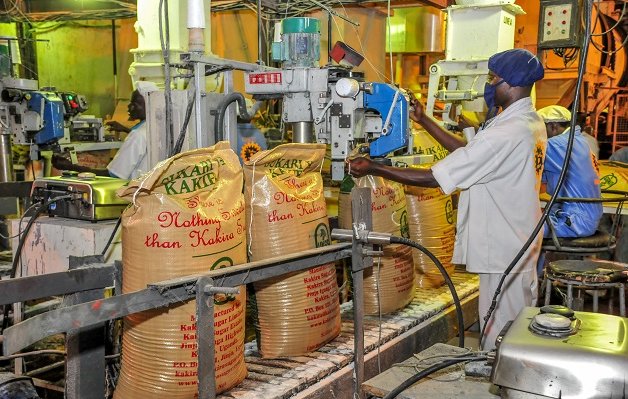The Uganda Manufacturers Association (UMA) has reiterated its dedication to driving the country’s economic transformation through industrialisation, emphasizing that manufacturing is the foundation of national development.
In a discussion on Spotlight Uganda, hosted by Sanyuka Television on Wednesday, UMA’s Director of Policy and Advocacy, Allan Senyondwa, highlighted the critical role of factories and manufacturing in propelling Uganda toward becoming an upper-middle-income nation. The conversation, themed “Advancing Trade and Industrial Growth for Uganda’s Transformation,” explored Uganda’s progress and the strategies that will underpin its projected tenfold economic growth over the next fifteen years.
According to the organisers, this ambitious growth plan will be guided by the forthcoming National Development Plan IV (NDP IV), which aims to transition Uganda from sector-based to programme-based planning to improve coordination across government. “No country has ever developed without factories, because trade is the exchange of goods — and without trade, there is no growth. To achieve tenfold growth, we need manufacturing. Our country has grown significantly in a short period, and our progress toward middle-income status depends entirely on manufacturing,” Senyondwa explained.
Senyondwa pointed out that Uganda currently hosts between 7,000 and 9,000 factories, reflecting significant industrial progress. He commended the resilience and innovation of local industries that continue to generate jobs, enhance export capacity, and drive national growth.
Addressing Uganda’s expanding export market, Senyondwa highlighted that Ugandan milk is now being exported to new international markets, notably Algeria, which recently imported 20,000 tonnes of powdered milk. “Kenyans may not be taking our milk, but Algerians are — and very soon, it will be scarce. You can't export milk to Algeria without meeting stringent standards, and we collaborate closely with the Uganda National Bureau of Standards (UNBS) to ensure this,” he added. Senyondwa praised the strong partnership between UMA and UNBS in ensuring Ugandan products meet international quality standards.
He also spotlighted local manufacturing success stories, citing Hisense TVs and fridges, which are now manufactured in Uganda instead of China. “Did you know that the Hisense TVs and fridges you see are actually made right here in Uganda, not China?” he said, showcasing Uganda's ability to host global brands and produce high-quality goods locally.
Senyondwa reaffirmed UMA’s optimism about Uganda’s rapid development and the transformative potential of industrialisation. “We are very pleased with the growth our country has achieved in such a short time. Industrialisation creates numerous opportunities for growth and innovation,” he remarked.
Looking ahead, as Uganda prepares to implement the upcoming NDP IV, the focus will be on industrialisation, tourism, mineral processing, and science, technology, and innovation — all of which are seen as essential pillars for the country's next phase of transformation.
UMA continues to advocate for policies that boost competitiveness, improve infrastructure, and support industrial development, viewing these as key drivers of sustainable economic prosperity.
